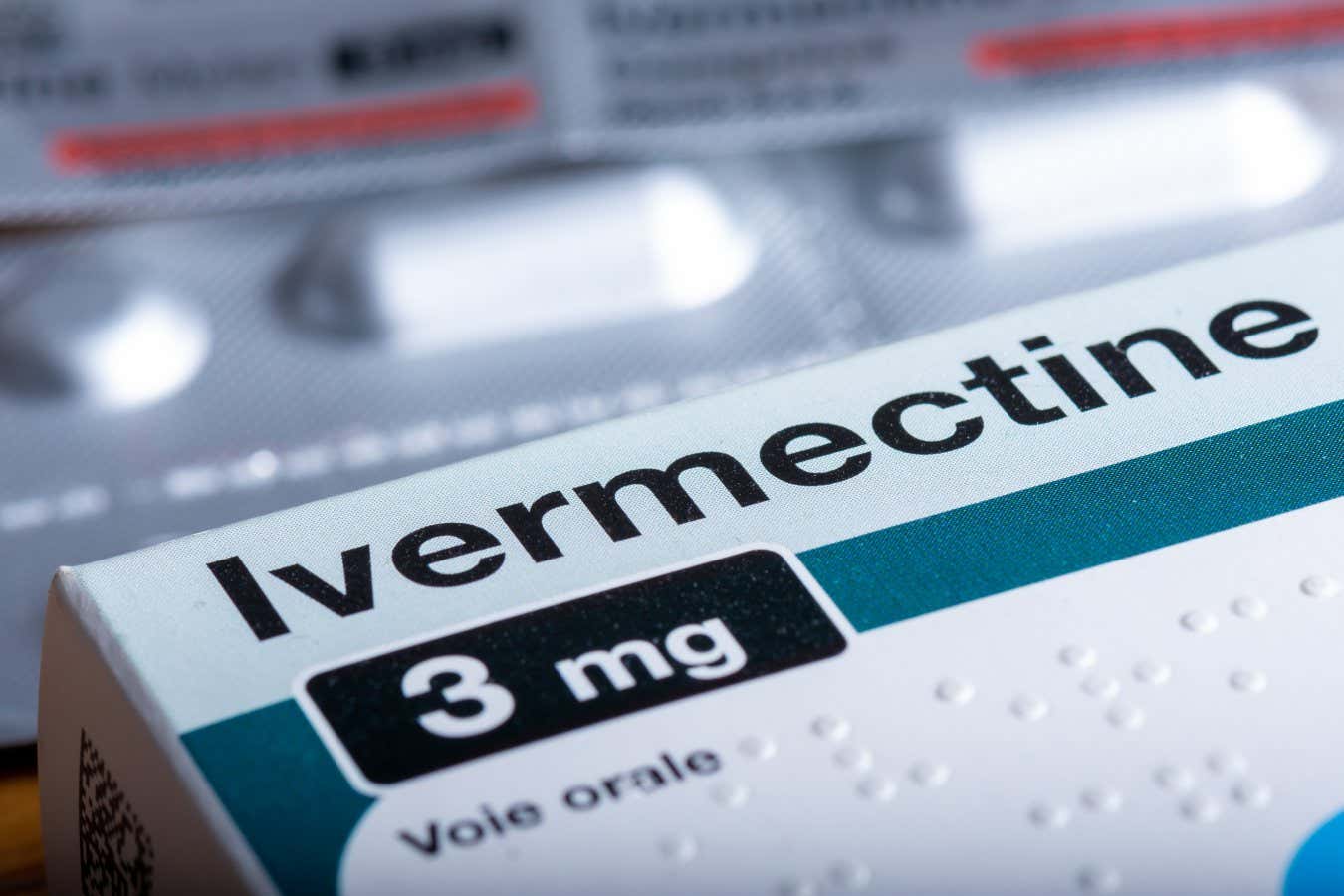
An antiparasitic drug became widely known during the covid-19 pandemic, though its uses have nothing to do with the virus
HJBC/Shutterstock Source: Shutterstock
Before 2020, most people had probably never heard of the anti-parasitic drug ivermectin. But interest in this once obscure medication skyrocketed during the covid-19 pandemic amid unfounded claims it could prevent or treat the viral infection. The popular podcast host Joe Rogan claimed to have taken it when he was sick with covid in 2021. That same year, Robert F Kennedy Jr – now the highest-ranking public health official in the US – petitioned the US Food and Drug Administration (FDA) to issue guidance supporting its use for covid-19.
Numerous studies have disproven ivermectin as a cure for covid-19, but the hype around it persists. While it gained a reputation as a quack remedy during the pandemic, ivermectin remains a legitimate drug – one that researchers still believe holds untapped potential.
What is ivermectin?
Ivermectin is an anti-parasitic compound developed by the US pharmaceutical company Merck in 1975. It is capable of killing a wide range of parasites and is approved by the FDA for treating two conditions caused by parasitic worms in humans: onchocerciasis, also known as river blindness, and intestinal strongyloidiasis. Ivermectin is also available in some countries for treating the parasitic condition lymphatic filariasis, as well as scabies.
While these parasitic infections are uncommon in high-income countries, they pose a significant threat to millions of people in lower-income countries around the world. As such, more than 300 million people take ivermectin each year, and it is widely considered one of the most impactful global health interventions to date. In 2015, its discoverers were awarded the Nobel Prize.
The FDA has also approved some topical forms of ivermectin for head lice and the skin condition rosacea. The drug is commonly used in animals as well to prevent and treat parasitic infections, such as heartworms and roundworms. Because these veterinary products differ from those used in humans, the FDA says people shouldn’t take them.
Can ivermectin treat or prevent covid-19?
Ivermectin doesn’t appear to be an effective treatment for covid-19. While some small studies early in the pandemic indicated it may help people recover from covid-19 and prevent replication of the virus, larger studies have shown no benefit.
For instance, a 2022 study of more than 3500 people with covid-19 found no difference in hospitalisations between those treated with ivermectin and those given a placebo. Another study in 2023 involving more than 1400 adults with covid-19 showed ivermectin didn’t help people recover from infection more quickly than a placebo.
Can ivermectin treat cancer?
Ivermectin isn’t approved for treating cancer and hasn’t been tested for it in clinical trials. Yet early research does suggest it has potential as a cancer treatment – but not by itself.
About a decade ago, Peter P Lee at the research institute City of Hope in Los Angeles found ivermectin might kill cancer cells in a process known as immunogenic cell death. This prompts immune cells to recognise and attack cancer cells. Lee and his colleagues were searching through a database from the US National Cancer Institute that logs the effect of all FDA-approved drugs on dozens of cancer cells. To their surprise, ivermectin increased signs of immunogenic cell death in numerous cancer cell types.
“Back then, I had never heard of ivermectin,” says Lee. “I had to look it up and saw that it was a parasitic drug, and I thought, well that is crazy.”
In 2021, he and his colleagues tested ivermectin in a mouse model of metastatic triple-negative breast cancer – one of the most aggressive and difficult-to-treat forms of the condition. They found that 40 per cent of mice treated with a combination of ivermectin and cancer immunotherapy lived past 80 days. By comparison, none of the mice treated with immunotherapy alone survived longer than 50 days, and those given only ivermectin fared no better than untreated rodents.
“Ivermectin by itself doesn’t really work against cancer,” says Lee. “But it seems highly effective in combination with immune-based therapies.”
A clinical trial investigating ivermectin in combination with cancer immunotherapies for metastatic triple-negative breast cancer is currently underway, with results expected next year. Other research in pancreatic cancer cells suggests immunotherapy is also more effective when paired with ivermectin for this condition, and Lee is now investigating whether the same is true for colon cancer cells.
While these results are promising, they don’t show ivermectin is an effective cancer treatment for people. “A lot of treatments that look promising in animals don’t pan out in humans,” says Lee.
What are ivermectin’s side effects?
While ivermectin is generally considered safe, it can be toxic in high doses. Possible side effects include nausea, vomiting, diarrhoea, low blood pressure and dizziness. Ivermectin can sometimes lead to seizures, coma and death, and it can interact with other medications, including blood thinners.
“People should not be doing [ivermectin] on their own or under the supervision of doctors that don’t really know much about this,” says Lee. “I am very hopeful that we can actually use ivermectin in a way that can benefit a lot of patients, but it is more complicated than just taking a bunch of pills on your own.”
Topics:
Source link : https://www.newscientist.com/article/2487055-the-truth-about-ivermectins-supposed-health-benefits/?utm_campaign=RSS%7CNSNS&utm_source=NSNS&utm_medium=RSS&utm_content=home
Author :
Publish date : 2025-07-08 20:12:00
Copyright for syndicated content belongs to the linked Source.










